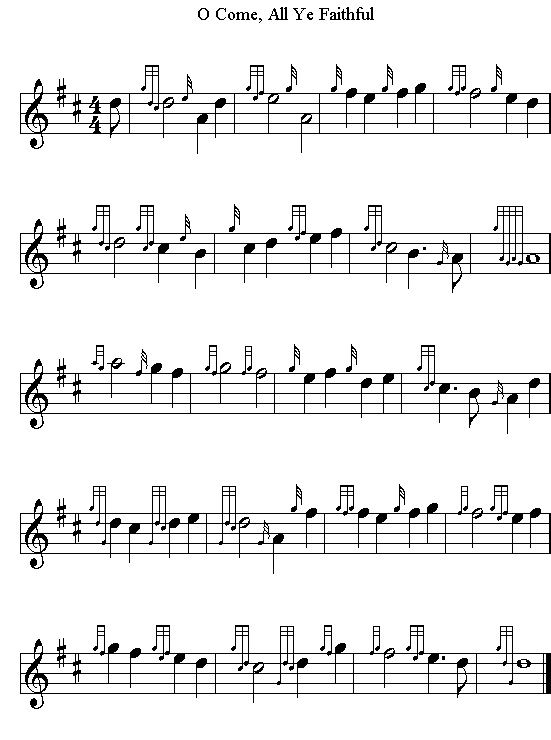 |
||||

Best viewed in
|
O Come, All Ye Faithful "O Come, All Ye Faithful" (originally written in Latin as Adeste Fideles) has been attributed to various authors, including John Francis Wade (1711–1786), John Reading (1645–1692), King John IV of Portugal (1604–1656), and anonymous Cistercian monks. The earliest printed version is in a book published by Wade, but the earliest manuscript bears the name of King John IV, and is located in the library of the Ducal Palace of Vila Viçosa. A manuscript by Wade, dating to 1751, is held by Stonyhurst College in Lancashire. In modern English hymnals, the text is usually credited to John Francis Wade, whose name appears on the earliest printed versions. However, this is most likely an error of attribution. Wade, an English Catholic, lived in exile in France and made a living as a copyist of musical manuscripts which he found in libraries. He often signed his copies, possibly because his calligraphy was so beautiful that his clients requested this. The version published by Wade consisted of four Latin verses. Later in the 18th century, the French Catholic priest Jean-François-Étienne Borderies wrote an additional three verses in Latin. Another anonymous Latin verse is rarely printed. The text has been translated innumerable times into English. The most common version today is a combination of one of Frederick Oakeley's translations of the original four verses, and William Thomas Brooke's translation of the three additional verses. It was first published in Murray's Hymnal in 1852. Oakeley originally titled the song "Ye Faithful, approach ye" when it was sung at his Margaret Church in Marylebone (London), before it was altered to its current form.
Lyrics
|
|||
